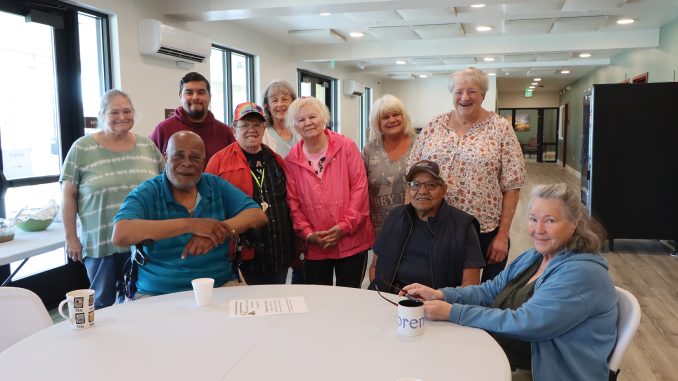
The Community Housing Improvement Program believes rental complexes are more than opportunities for housing—they’re a chance for respite, self-improvement and community.
In his birthplace of Ecuador, with an education and background in psychology, Washington “Washo” Quezada worked and volunteered in indigenous communities and marginalized neighborhoods—often creating programs aiding children and families.
After he moved to Chico, California in 1996, CHIP hired Quezada in 2002 to help start a Resident Services department.
“I love the idea of creating, that’s always been my thing,” Quezada says. “My background is in creating projects, learning about a group or agencies, and then trying to make it so they can meet the needs of the people.”
As one of two Resident Services Specialists overseeing CHIP’s 19 apartment complexes, Quezada helps organize and host a variety of free events and services, as well as annual celebrations such as a big summer barbecue, Halloween pumpkin-carving and turkey for Thanksgiving.
Past events have included cooking and finance classes, workshops on avoiding money scams, after school programs, Zumba workouts, and gardening at Murphy Commons—which Quezada says has Chico’s first community garden on city grounds.
“To me,” says Quezada, “it’s super important to create a culture. The properties I work for, they know something is happening each month.”
Whatever the event’s activity, Quezada hopes it helps create a culture within the apartment’s community, a regular and reliable source of connection for people’s shared likes and needs.
“They come to the nutrition class or bingo,” Quezada says, “and they get to know each other and they get to become friends.”
Though certainly informative and fun—classes may be paired with a raffle or a meal—Quezada believes CHIP’s goal in organizing such events goes beyond bringing neighbors together for a good time.
“I haven’t met one person in CHIP that is not really wishing to help people,” Quezada says. “So, in that sense, the question is, ‘how can we support people?’ Let’s not just give them housing but how can we offer possibilities for them to open doors?”
Quezada views Resident Services as a department that helps connect residents to these open doors—opportunities for respite or self-reflection on areas someone may wish to change or improve.
“No one has to be a part of Resident Services,” Quezada says, “but if they come and they start requesting things, it becomes a conversation.”
Knowing what the residents enjoy and find helpful allows Quezada to go into the surrounding communities and bring in private, government, religious or nonprofit agencies that can provide the residents with support, wrap-around services, or health and happiness.
In the past, Quezada says Resident Services has partnered with such groups as CalFresh, CSU–Chico, UC Cooperative Extension, Oakland’s Centro Legal de la Raza, and Northern Valley Catholic Social Service. He praises their willingness to hear and adapt their offerings to what the residents want and need.
“If I think there’s one person who actually changed the way they saw nutrition, changed their life around it, and then became a part of a community around it, the whole program is successful.”
Washington “Washo” Quezada
Resident Services Specialist
“It’s a program that feeds itself from the community,” Quezada says. “We can offer what agencies and people around the communities can offer.”
Using these same agencies, Quezada often works one-on-one with residents for life’s ubiquitous challenges—paying rent or questions around financial, employment or medical paperwork.
“It’s not just a relationship between money and apartment,” Quezada says, “it’s a human relationship that we are offering them.”
In this vein, measuring the effectiveness and return on the program’s investment isn’t marked by increased attendance or the baking contest’s grand prize.
“If I think there’s one person,” Quezada says, “who actually changed the way they saw nutrition, changed their life around it, and then became a part of a community around it, the whole program is successful.”
To learn more about CHIP’s programs, visit https://chiphousing.org/

